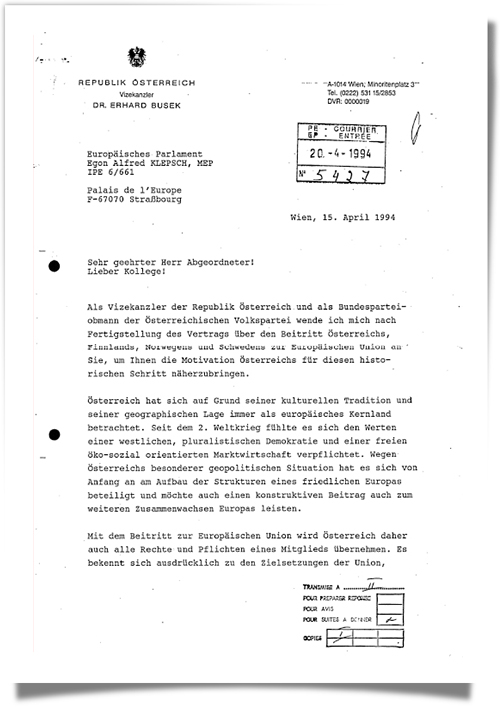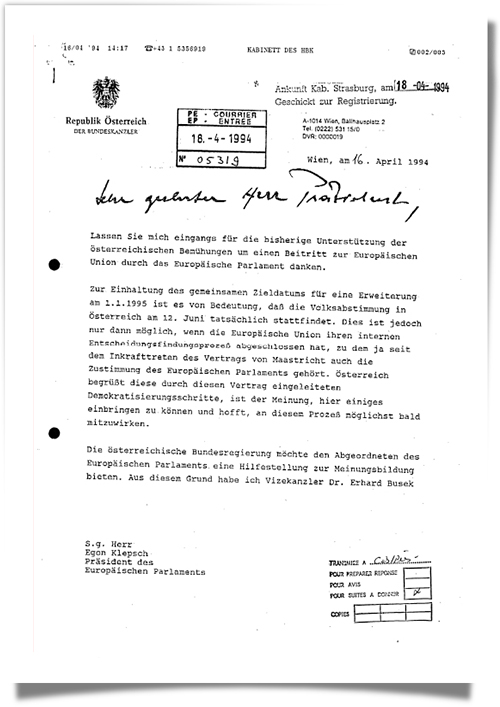President Klepsch had occasion to exercise one of the new powers conferred on him by the Maastricht Treaty, namely, to accept or reject the new Member States, when the EU was enlarged from twelve to fifteen Member States.
The European Parliament was invited by the Council of the European Union to give its assent to the applications for membership from Austria, Finland, Norway and Sweden:
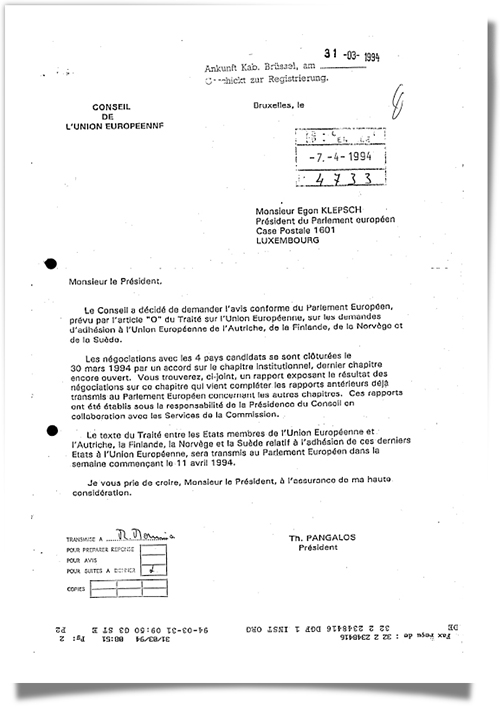
On 24 June 1994, Egon Klepsch, President of the European Parliament, welcomed the signature that day in Corfu by Austria, Finland and Sweden of the Accession Treaty with the European Union and remarked:
“On that occasion I described Parliament’s favourable vote as a decision of historic importance and extended a warm welcome to the new prospective members of the European Union. (...) It was, above all, the progressive democratic values embodied in the socially concerned, democratic model of society in your countries, together with your political culture and your commitment to transparency and openness in politics that the European Parliament recognised when it voted in favour of the accession applications on 4 May. (...) It is only through this debate that the general public has come to realise that the European Parliament enjoys crucial rights and powers and that it uses these in a responsible manner (...)”
At the same time, calls for an enlargement of the EU towards Eastern Europe were also gathering increased force. In June 1993, the Copenhagen European Council drew up the terms and conditions for accession to the EU, known as the Copenhagen criteria, for the enlargement in Eastern Europe, and at the beginning of 1994 Hungary and Poland submitted their application for membership. The Copenhagen European Council bore fruit ten years later with the major enlargement of 2004.
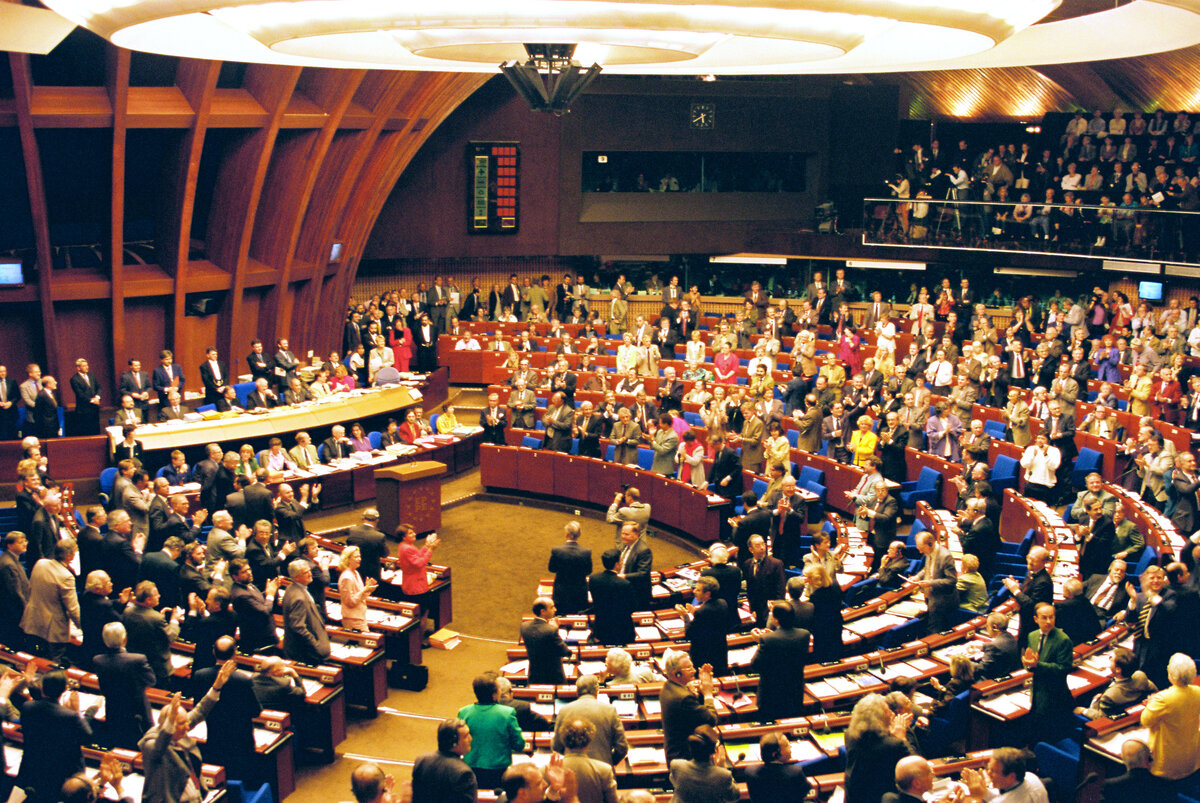 Plenary session in Strasbourg - Vote on the enlargement of the European Union for Norway, Austria, Finland, and Sweden © European Union, 1994
Plenary session in Strasbourg - Vote on the enlargement of the European Union for Norway, Austria, Finland, and Sweden © European Union, 1994
The integration of East Germany
In less than a year after the fall of the Berlin Wall, Germany had regained its unity and its sovereignty. This was a source of great satisfaction for the European Parliament, backed up by the belief it had risen to these historic events. An urgent issue then emerged: German reunification raised the question of democratic representation for the 16 million new citizens of the European Community. The European Parliament accordingly agreed to grant seats to 18 observers from the five Länder of the former GDR.
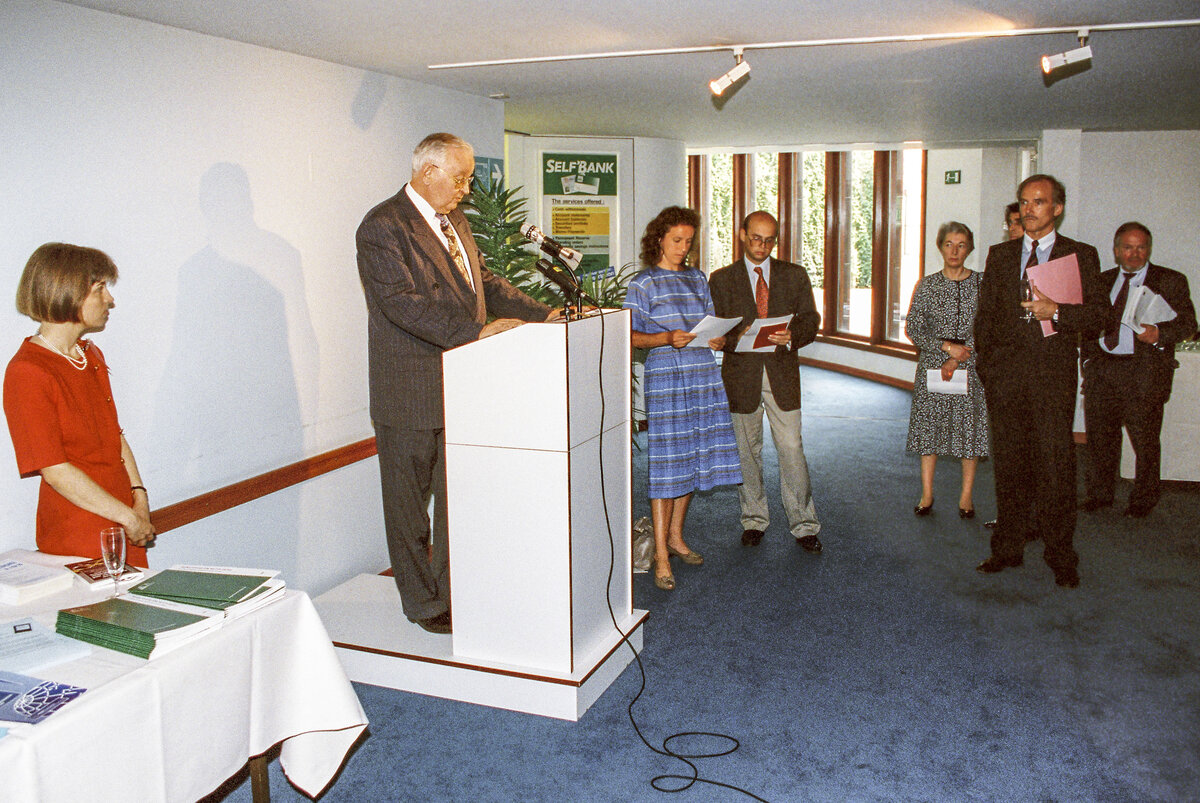 Presentation of publication and books on the German Unification at the European Parliament in Brussels. Rosalind Stevens-Stroehmann, President of the European Parliament Egon Klepsch © European Communities, 1993
Presentation of publication and books on the German Unification at the European Parliament in Brussels. Rosalind Stevens-Stroehmann, President of the European Parliament Egon Klepsch © European Communities, 1993
Democratically elected to the East German Volkskammer (People’s Chamber) in March 1990 and sent by the German Bundestag in the meantime, these observers began to follow the work of the European Parliament and its parliamentary committees and political groups in 1991. Following a number of logistical modifications, they joined the German delegation without the right to vote. In the above interview, Klepsch discusses the status of German observers in the European Parliament and the distribution of seats in the Parliament during his Presidency.
